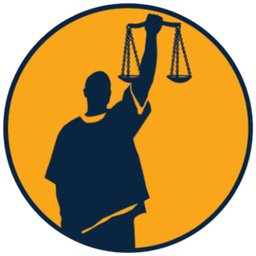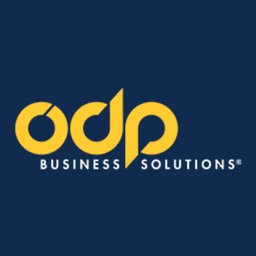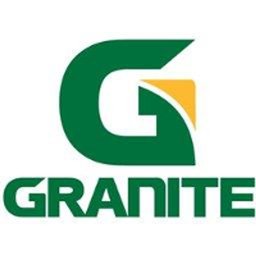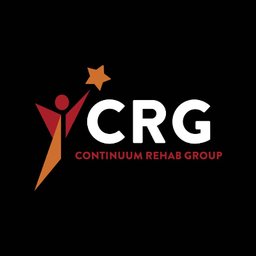Job Opportunities in United States

November 15, 2024
UnCommon Law
Oakland
FULL TIME
Director of Policy and Advocacy
Director of Policy and Advocacy
Application deadline is Friday, December 6th, at 5pm PST
About Un Common Law
Un Common Law fights to ensure that all people incarcerated for violent crime have access to healing, justice, and effective legal representation.
Through our unique, trauma-informed model of advocacy, we provide the space currently missing in the system for healing, accountability, and safe pathways home from prison. In developing new self-narratives, the people we serve are able to more effectively disrupt violence inside and outside prison and become leaders who change negative societal narratives about those incarcerated for violent crime. Our groundbreaking approach is changing policy and outcomes, driven by the voices and experiences of system-impacted communities.
About the Role
The Director of Policy and Advocacy (DPA) reports to the Executive Director, supervises the Policy Manager(s), and provides strategic leadership in the development and implementation of the organization’s advocacy agenda and campaigns agendas to ensure that our policy goals are achieved. The DPA engages with all other Un Common Law teams to ensure consistency and integration between the various program departments with respect to research, communications, community engagement, and policy campaigns. The DPA directs - in collaboration with the Director of Legal Services – the policy-related work of the Litigation and Policy Attorney, and coordinates with the Communications Manager in executing strategic communications to support Un Common Law’s advocacy efforts.
The DPA is a thoughtful, creative, strategic, collaborative, compassionate and dynamic leader and manager with a track record of supporting a talented and diverse team with the goal of inclusion, innovation and sustainable growth. The DPA should have demonstrated success in leading impactful campaigns utilizing a range of creative, multidisciplinary strategies, which might include a combination of including research, strategic communications, media outreach, grassroots organizing, legislative advocacy, and lobbying to educate and mobilize support for an issue. The DPA utilizes their background in community organizing and executing grassroots campaigns to ensure that Un Common Law’s advocacy strategies empower and directly engage those most directly impacted by the policies we seek to change, and to engage national partners pursuing parole reform in other U.S. states.
This exempt position reports directly to the Executive Director and offers an annual salary range of $138,250 to $154,050. The Director of Policy and Advocacy is based in Oakland with two days per week in the office; however, for the right candidate, we would consider fully remote.
Key Duties and Responsibilities
General
California State Policy Advocacy
National Policy Advocacy
Experience
Abilities and Attributes
Benefits and Support
Currently, Un Common Law offers 100% Paid Medical, Dental, and Vision insurance for employees and covers 75% for dependents. To support our team’s mental wellbeing, we also provide a Health Reimbursement Account (HRA) of $200/month in reimbursable funds for therapeutic expenses. We have a flexible time off policy and close for two weeks from late December to early January each year. We offer a generous family leave policy, flexible hours, FSA and Retirement plans, regular access to training and clinical support, and generous sick leave. In addition to the formal benefits, we are committed to building and maintaining an equitable culture that is sustainable and joyful and where each team member can thrive. You’ll see this in the acknowledgements in weekly staff meetings, in-office lunches, and community gatherings.
COVID Protocol
Un Common Law currently requires COVID vaccination (we consider exceptions for religious or medical purposes), testing prior to entering into facilities as needed, and masking in institutions and shared office settings is optional. A complete list of UCL’s COVID protocols can be provided upon request.
Application Instructions
Please submit a resume and a cover letter describing your interest and relevant experience for the role, along with contact information for two professional, academic or other relevant references to our hiring portal (https://uncommonlaw.bamboohr.com/jobs/). Applicants who submit cover letters that are not tailored to the position or the organization will not be considered.
Please note that all correspondence in the hiring process will be through the Bamboo HR portal. Following the submission of your application, you should receive an automatic response (via email) thanking you for your application. If you do not receive this, please check your spam folder.
UCL is committed to providing an inclusive, welcoming, and culturally responsive environment for all members of our staff, volunteers, subcontractors, vendors, and clients. UCL does not discriminate on the basis of race, color, religion (creed), gender, gender expression, age, national origin (ancestry), disability, marital status, sexual orientation, military status, or prior contact with the criminal justice system. We strongly encourage applications from people impacted by incarceration as well as from traditionally underrepresented communities.
Application deadline is Friday, December 6th, at 5pm PST
About Un Common Law
Un Common Law fights to ensure that all people incarcerated for violent crime have access to healing, justice, and effective legal representation.
Through our unique, trauma-informed model of advocacy, we provide the space currently missing in the system for healing, accountability, and safe pathways home from prison. In developing new self-narratives, the people we serve are able to more effectively disrupt violence inside and outside prison and become leaders who change negative societal narratives about those incarcerated for violent crime. Our groundbreaking approach is changing policy and outcomes, driven by the voices and experiences of system-impacted communities.
About the Role
The Director of Policy and Advocacy (DPA) reports to the Executive Director, supervises the Policy Manager(s), and provides strategic leadership in the development and implementation of the organization’s advocacy agenda and campaigns agendas to ensure that our policy goals are achieved. The DPA engages with all other Un Common Law teams to ensure consistency and integration between the various program departments with respect to research, communications, community engagement, and policy campaigns. The DPA directs - in collaboration with the Director of Legal Services – the policy-related work of the Litigation and Policy Attorney, and coordinates with the Communications Manager in executing strategic communications to support Un Common Law’s advocacy efforts.
The DPA is a thoughtful, creative, strategic, collaborative, compassionate and dynamic leader and manager with a track record of supporting a talented and diverse team with the goal of inclusion, innovation and sustainable growth. The DPA should have demonstrated success in leading impactful campaigns utilizing a range of creative, multidisciplinary strategies, which might include a combination of including research, strategic communications, media outreach, grassroots organizing, legislative advocacy, and lobbying to educate and mobilize support for an issue. The DPA utilizes their background in community organizing and executing grassroots campaigns to ensure that Un Common Law’s advocacy strategies empower and directly engage those most directly impacted by the policies we seek to change, and to engage national partners pursuing parole reform in other U.S. states.
This exempt position reports directly to the Executive Director and offers an annual salary range of $138,250 to $154,050. The Director of Policy and Advocacy is based in Oakland with two days per week in the office; however, for the right candidate, we would consider fully remote.
Key Duties and Responsibilities
General
- In close collaboration with the Executive Director, lead in setting the collective vision, culture, and goals for the policy and advocacy team. Specifically, build upon our existing policy framework to develop and implement a robust policy strategy for the next three years, including legislative and budget advocacy, regulatory advocacy, educational campaigns, and grassroots organizing.
- Leads high-impact policy research initiatives, providing expert analysis and strategic guidance on legislative proposals, conducting thorough impact assessments, and preparing comprehensive reports and presentations with actionable recommendations for stakeholders.
- Sets the strategic vision and direction for the organization’s policy and advocacy efforts, crafting long-term plans to influence public policy, align initiatives with organizational goals, adapt to emerging trends, and promote innovative advocacy approaches, while ensuring continuous education on policy developments across the organization.
- Directly supervise the Policy Manager(s), providing mentorship and professional growth opportunities while co-creating strategic goals, priorities, and work plans for the policy team.
- Collaborate with Un Common Law’s legal, development, communications, operations and new leadership teams to ensure the clear and timely sharing of information (regarding advocacy strategy, goals, challenges, timelines, updates, etc.) throughout the organization.
- Cultivate partnerships with incarcerated people, formerly incarcerated people, community based organizations and others in order to establish firm grassroots in the community of people most directly impacted by incarceration and their advocates and allies.
- Oversee public education efforts (through events inside prisons and in the community) regarding the parole consideration process and the impacts of policy decisions on incarcerated people and those connected to them.
- Collaborate with the Communications Manager to develop communications strategy in support of advocacy goals and campaigns, sometimes serving as a spokesperson in the media.
- Provide training and guidance for Un Common Law’s staff to build up our capacity and competency to engage in community organizing and to develop and execute grassroots campaigns.
- Evaluate the policy team’s success toward achieving Un Common Law’s strategic goals and objectives.
- Oversee and manage Un Common Law’s contract agreements with policy consultants, event speakers, and providers of professional development resources.
California State Policy Advocacy
- As a member of our policy team, participate in the recently formed California Alliance for Parole Reform (CAPR).
- Oversee the development and implementation of a strategic plan to educate state lawmakers on the parole consideration process and its impact on incarcerated people and their loved ones.
- Oversee the development of legislative language, legislative tracking, and the drafting of position letters and administrative rulemaking comments.
National Policy Advocacy
- Establish Un Common Law as a national leader in discretionary parole policy reform.
- Cultivate relationships and partnerships with advocates in other states, building a network of national parole advocates (which could include a formal coalition and/or national convenings), and developing communication and advocacy strategies to elevate parole issues as a national priority for criminal justice reform.
- Develop resources based on our learnings in California that can help other states and jurisdictions move policies and conversations aimed at creating meaningful pathways out of prison for those incarcerated for serious crimes.
- Develop and implement high-impact government relations by leveraging influential relationships with policymakers, leading key legislative and regulatory initiatives, and ensuring alignment with organizational goals to shape long-term public policy.
Experience
- 5+ years of public policy experience at either federal, state, or local level, preferably for progressive organizations and/or related to decarceration, criminal justice, or issues of racial equity. This should include direct experience analyzing and interpreting legislative and regulatory language.
- Experience in a senior leadership role responsible for creating and implementing innovative, high-impact advocacy campaigns.
- Demonstrated success in leading impactful campaigns utilizing a range of creative, multidisciplinary strategies, including research, strategic communications, media outreach, grassroots organizing, legislative advocacy, and lobbying.
- Demonstrated ability to make accurate and clear assessments about policy and, with foresight, make determinations, produce insightful ideas, and lead a team toward impactful next steps.
- Extensive experience in team leadership and management, with a proven track record of building team capacity within an organization.
- Demonstrated ability to partner with and influence diverse stakeholders, including policy makers, community members, incarcerated and formerly incarcerated people and their loved ones, and other advocacy groups or organizations.
- Demonstrated commitment to community organizing, coalition-building and ability to work constructively and collaboratively with grassroots partners.
- Experience incorporating (or, at least an understanding of the need to incorporate) the perspectives of multiple communities, including directly impacted communities, in the consideration of impacts and outcomes of a decision-making process.
- A combination of education, training, and experience that demonstrates the ability to perform the duties of the position.
- Adept at computer programs including Microsoft Word, Excel, and the Google Suite. (Either proficiency or a commitment to achieve proficiency upon hire.)
Abilities and Attributes
- Excellent advocacy, consensus-building, and coalition-building skills.
- Demonstrated understanding of policy change processes and strong analytical skills regarding the political and legal landscape in criminal justice reform.
- A self-motivated, collaborative teammate who can also thrive in independent projects.
- A well-developed interpersonal skill set that includes active listening, humility, empathy, patience, relationship building, and conflict resolution.
- A willing and compassionate learner and teacher among staff.
- A strategic mindset, with a demonstrated ability to think imaginatively and to plan and execute against a strategy taking into account emergent opportunities.
- Strong leadership and management skills.
- The ability to produce consistent, quality work in a fast-paced environment.
-
Communication Skills:
- Strong verbal and written communication skills, meeting facilitation skills, and ability to reach out to and meet with diverse audiences, specifically racially and socially diverse communities;
- Flexibility, attention to detail, and the ability to successfully manage crises and rapid change are essential to this position;
- Excellent analytical skills with the ability to understand and explain complex topics and issues to people impacted.
-
Team leadership:
- Experience effectively supervising and developing staff;
- Experience in facilitating meetings, workshops, and/or popular education training to deepen participants' understanding of policy analysis and goals;
- Ability to manage several projects simultaneously and to adjust to frequently changing demands.
-
Commitment to Equity, Inclusion, and Trauma-Informed Practices:
- A rigorous understanding of, and commitment to uprooting institutional and structural racism and bias, white dominant culture and structures of power, and their impact on marginalized communities is preferred;
- Commitment to social change and justice through building the capacity and power of socioeconomically and racially marginalized communities low-income people to transform their change their communities realities and to participate directly in changing the public policies that impact them;
- Commitment to Un Common Law’s vision of healing and freedom for all incarcerated people, especially people serving life sentences
Benefits and Support
Currently, Un Common Law offers 100% Paid Medical, Dental, and Vision insurance for employees and covers 75% for dependents. To support our team’s mental wellbeing, we also provide a Health Reimbursement Account (HRA) of $200/month in reimbursable funds for therapeutic expenses. We have a flexible time off policy and close for two weeks from late December to early January each year. We offer a generous family leave policy, flexible hours, FSA and Retirement plans, regular access to training and clinical support, and generous sick leave. In addition to the formal benefits, we are committed to building and maintaining an equitable culture that is sustainable and joyful and where each team member can thrive. You’ll see this in the acknowledgements in weekly staff meetings, in-office lunches, and community gatherings.
COVID Protocol
Un Common Law currently requires COVID vaccination (we consider exceptions for religious or medical purposes), testing prior to entering into facilities as needed, and masking in institutions and shared office settings is optional. A complete list of UCL’s COVID protocols can be provided upon request.
Application Instructions
Please submit a resume and a cover letter describing your interest and relevant experience for the role, along with contact information for two professional, academic or other relevant references to our hiring portal (https://uncommonlaw.bamboohr.com/jobs/). Applicants who submit cover letters that are not tailored to the position or the organization will not be considered.
Please note that all correspondence in the hiring process will be through the Bamboo HR portal. Following the submission of your application, you should receive an automatic response (via email) thanking you for your application. If you do not receive this, please check your spam folder.
UCL is committed to providing an inclusive, welcoming, and culturally responsive environment for all members of our staff, volunteers, subcontractors, vendors, and clients. UCL does not discriminate on the basis of race, color, religion (creed), gender, gender expression, age, national origin (ancestry), disability, marital status, sexual orientation, military status, or prior contact with the criminal justice system. We strongly encourage applications from people impacted by incarceration as well as from traditionally underrepresented communities.
Latest Job Opportunities





November 20, 2024
Layne Christensen Company
Water Pump Installer - Layne
Middletown
FULL TIME
View DetailsSimilar Jobs

November 4, 2024
Continuum Rehab Group
Director of Rehab PTA or OTA Alamogordo, NM!
Alamogordo
FULL TIME
View Details

November 4, 2024
University of New Mexico
Open Rank of Nursing, PNP Program Director
Albuquerque
FULL TIME
View Details
November 5, 2024
Los Alamos National Laboratory
W-4 Project-Program Director 4
Los Alamos
View DetailsNovember 5, 2024
Betty Dare Wellness & Rehabilitation
Activities Director
Alamogordo
FULL TIME
View Details